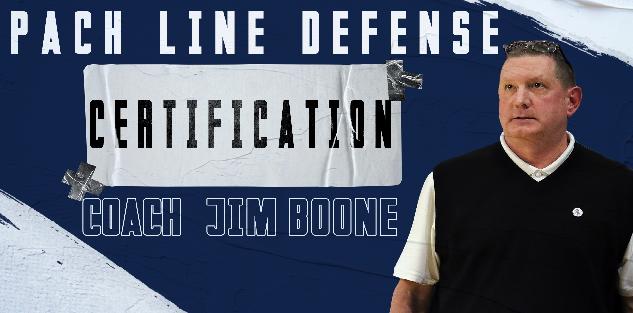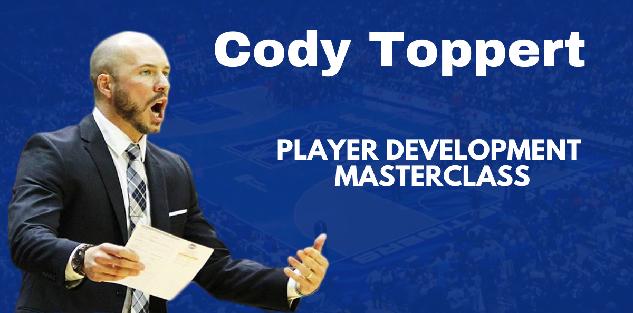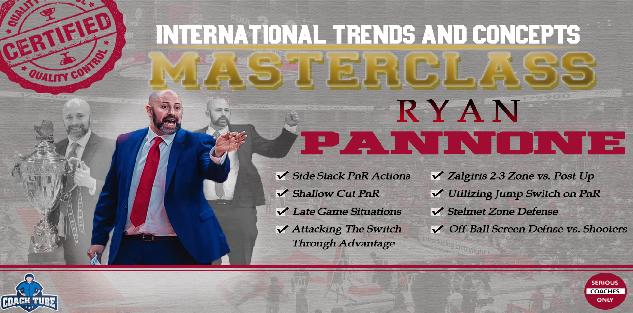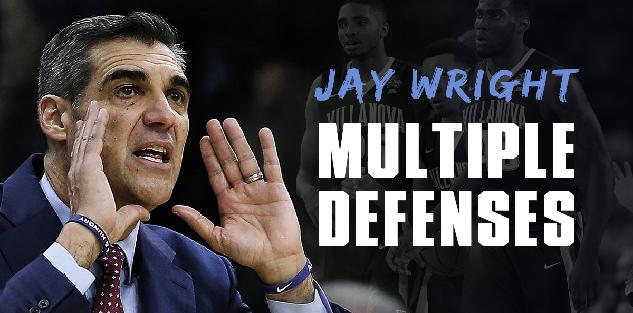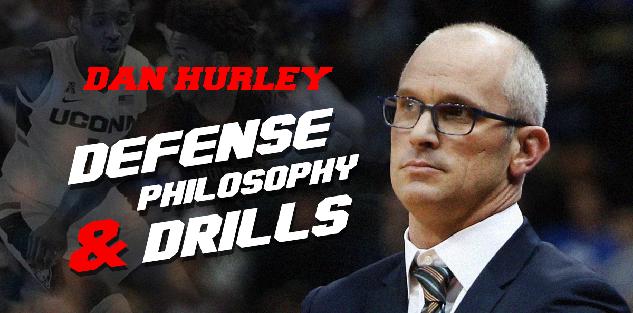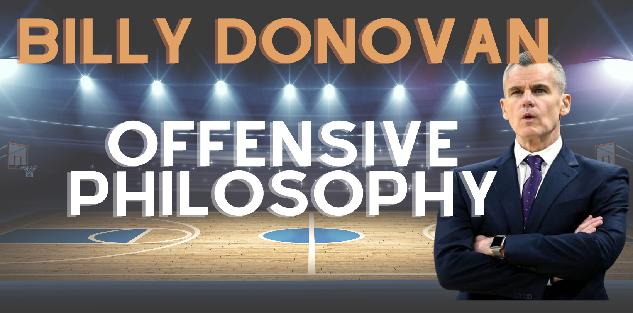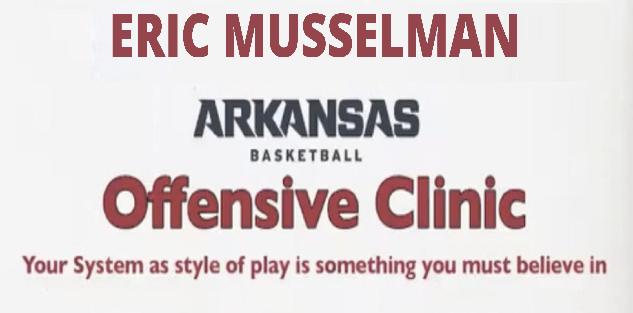Featured courses
- Two Great Game Situational Workouts For the Basketball Offseason by Grant Young
- Two Reads Basketball Players Must Understand Before Executing the Ball-Screen by Grant Young
- Two of LSU Coach Kim Mulkey’s Game-Winning Inbounds Plays by Grant Young
- Three Effective Early-Season Defensive Basketball Drills by Grant Young
- Four Essential Tips For Basketball’s 1-3-1 Zone Defense by Grant Young
- Four Zone Defense Drills to Strengthen Your Team by Grant Young
- How to Beat the Three Most Common Pick and Roll Coverages by Grant Young
- Two Drills to Improve Shooting at the Start of the Basketball Season by Grant Young
- Core Basketball Principles That Dallas Mavericks Coach Sean Sweeney Teaches by Grant Young
- Three Competitive Shooting Drills For Your Basketball Team by Grant Young
- How To Teach The ‘I’ Generation of Basketball Players by Grant Young
- Three Elite Drills to Begin a Basketball Practice With by Grant Young
- How to Build a Championship-Winning Basketball Team Culture by Grant Young
- Two of Texas Women’s Basketball Coach Vic Schaefer’s Tips For Team Culture by Grant Young
- Atlanta Dream WNBA Coach Brandi Poole’s Four Sets for Secondary Offense by Grant Young
- NC State Basketball Coach Brett Nelson’s 4 Crucial Point Guard Qualities by Grant Young
- Kentucky Coach Mark Pope’s Five Guard Rules For Offense by Grant Young
- McNeese State Basketball Coach Will Wade’s 4 Core Pillars by Grant Young
- 4 Tips To Instantly Improve Your Free Throw Shooting by Tyler Linderman
- Assemble a Championship-Caliber Basketball Rotation by Brandon Ogle
- Two of UConn Coach Dan Hurley’s Key Defensive Drills by Grant Young
- Four Post Moves All Basketball Forwards Should Have In Their Bag by Grant Young
- Four of Baylor Coach Nicki Collen’s Midseason Pick and Roll Adjustments by Grant Young
- WNBA Legend Sue Bird’s Two Tips For Attacking on Offense by Grant Young
- Houston Coach Kelvin Sampson’s Three Keys for Building a Basketball Program by Grant Young
- Two of Tom Izzo’s Top Michigan State Defensive Drills by Grant Young
- Four of Olympic Gold Medalist Coach Mechelle Freeman’s Relay Race Strategies by Grant Young
- Three Key Strategies Will Wade Uses to Build a Dominant Team by William Markey
- Five UConn Huskies Men’s Basketball Plays That You Can Use by Grant Young
- Three Tips for Maintaining Team Culture at the End of a Basketball Season by Grant Young
- Three Dribble Drive Motion Drills to Teach Your Basketball Team by Grant Young
- Three Dribbling Drills For Non-Primary Ball Handlers by Grant Young
- Four Advanced Ball Handling Drills For Basketball Guards by Grant Young
- Three Tips to Sharpen Your Post Player’s Footwork in Basketball by Grant Young
- These Three Pick and Roll Drills Are Crucial For Any Ball Screen Offense by Grant Young
- Three Closeout Drills to Improve Basketball Shooting Defense by Grant Young
- Three Tips to Perfect the Packline Defense in Basketball by Grant Young
- Four Keys to Executing the Read and React Offense in Basketball by Grant Young
- Three Tips to Develop Elite Basketball Shooters by Grant Young
- Three Crucial Keys to Executing the 5 Out Offense in Basketball by Grant Young
- These Three Offensive Sets Will Help You Beat Any Zone Defense by Grant Young
- Three Transition Basketball Drills To Play With More Pace by Grant Young
- Three 5 Out Offense Drills Any Basketball Coach Can Use by Grant Young
- Four Vital Techniques for a Motion Offense in Basketball by Grant Young
- Three Baseline Inbounds Plays To Win Your Basketball Team Games by Grant Young
- Four Drills For Sharpening the European Ball Screen Offense by Grant Young
- Three Positioning Tricks For a Basketball Zone Offense by Grant Young
- Three Rules to Perfecting Basketball's Lock Left Defensive System by Grant Young
- UCLA WBB Coach Cori Close’s Two Keys to Winning the Mental Game by Grant Young
- Four of Alabama Coach Nate Oats’ Favorite Basketball Drills by Grant Young
- Three Ways To Turn Transition Offense in Basketball Into Points by Grant Young
- Three Drills to Master Basketball's Pack Line Defense by Grant Young
- Three Transition Defense Drills to Halt Fast Breaks by Grant Young
- Four Offensive Rebounding Drills to Win Second Possessions by Grant Young
- 4 Defensive Technique Drills from Boston Celtics Assistant Coach Brandon Bailey by Marek Hulva
- 5 Drills to Improve Ball Handling by Tyler Linderman
- 13 FUNNY BASKETBALL GIFS by Alex
- BASKETBALL SPEED AND AGILITY: 8 QUESTIONS FOR COACHTUBE EXPERT RICH STONER by Jaycob Ammerman
- Defensive Strategies for Basketball by Ryan Brennan
- 4 Keys To Turning Your Program Into Championship Contender By Dallas Mavericks Coach Sean Sweeney by Marek Hulva
- 5 Components to Creating a Winning Basketball Program by Justin Tran
- Guide to Becoming a Lethal Scorer in Basketball by Justin Tran
- Zone Defense In the NBA Eastern Conference Finals by James Locke
- Mastering Court Mobility: Tips for Effective Movement in Basketball by Justin Tran
- 5 Basketball Shooting Drills: How to Develop a Sharpshooter by James Locke
- 6 Points of Emphasis for a Successful 5 Out Offense by Jaycob Ammerman
- Effective and Efficient Methods to Practice During the Basketball Season by Justin Tran
- Three Great Passing Drills From a Basketball Coaching Legend by Grant Young
- 7 Principles For Perfecting the Princeton Offense in Basketball by Grant Young
- How to Replicate A Modern NBA Offense by Grant Young
- Three Great Two-Ball Dribbling Drills For Basketball Development by Grant Young
- Two Rebounding Drills to Win Your Basketball Team Championships by Grant Young
- How to Improve Your Basketball Team’s Defense With the Shell Drill by Grant Young
- How Baylor Basketball’s Scott Drew Develops Elite Guard Play by Grant Young
- Off-Ball Movement Tips and Strategies: Lessons From the NBA Finals by James Locke
- Player Development: Scott Drew’s Tips for Producing NBA Guards by James Locke
- How to Execute a Spread Offense in Basketball by Grant Young
- Four Quality Quotes From Four Final Four Coaches by Grant Young
- A Guide to the Pack Line Defense by Alex Martinez
- 3 Defensive Build Up Drills to Improve Team Basketball Defense by Grant Young
- Battle of Two Great Coaches: Best Plays from the NBA Finals Contenders by Justin Tran
- 10 Creative Ways Athletic Programs Can Use a Video Board to Raise Money by Coach Williams
- How to Use 3 on 3 to Improve Your Basketball Team by Grant Young
- How to Defend the Pick and Roll by Grant Young
- Mastering Basketball Defense: Techniques, Drills, and Strategies for Success by Justin Tran
- Three Tips From The Coach Who Developed Giannis Antetokoumnpo by Grant Young
- 2023 NBA Draft: Skills and Technique from Top Prospects by Justin Tran
- From College to the Pros: Transitioning the Dribble Drive Offense by Justin Tran
- Positionless Basketball: Redefining Roles on the Court by Justin Tran
- Revolutionize Your Offense: Proven Concepts to Elevate Your Basketball Game by Justin Tran
- 5 Essential Fastbreak Drills Every Basketball Coach Should Know by James Locke
- How to Run a Circle Offense in Basketball by Grant Young
- Game-Changing Strategies: ATO Plays in the EuroLeague and Olympics by Justin Tran
- How to Stand Out at Basketball Tryouts by Grant Young
- How to Improve Your Basketball Team’s Transition Defense by Grant Young
- Indiana Fever GM Lin Dunn’s Two Keys For Women’s Basketball Coaches by Grant Young
- Strength Training Strategies Every Basketball Player Should Have by Grant Young
- A WNBA Basketball Coach’s Four Priorities In Transition Defense by Grant Young
- Three Adjustments to Make When Your Basketball Offense Isn’t Working by Grant Young
- Three Pillars to Applying Defensive Pressure on the Basketball Court by Grant Young
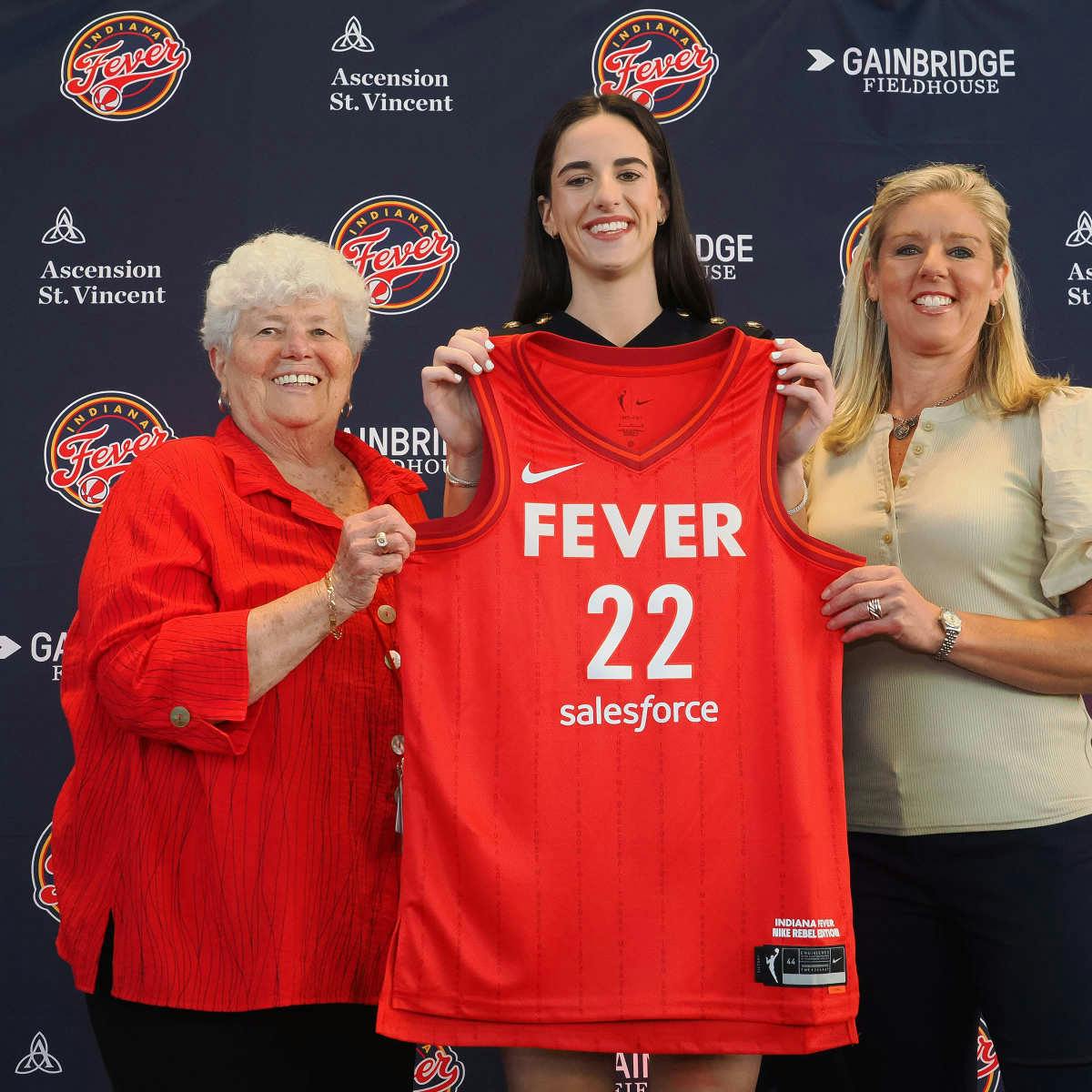
Indiana Fever GM Lin Dunn’s Two Keys For Women’s Basketball Coaches
- By Grant Young
Coaching women's basketball comes with its own set of unique challenges:
1. Breaking through gender stereotypes and biases that may exist in the sports world. As a coach, it's important to create an environment where female athletes feel supported and empowered, and where their skills and abilities are recognized and valued.
2. Managing the different communication styles and emotional dynamics that may be present within a women's team. Effective communication and understanding of individual personalities are crucial for building a cohesive and successful team.
3. Addressing the specific physical and physiological differences between male and female athletes is important. Training programs, injury prevention strategies, and overall game tactics may need to be tailored to accommodate these differences.
Overall, coaching women's basketball (and running women’s basketball coaching clinics) requires not only a deep understanding of the sport but also a strong awareness of the unique social, emotional, and physical aspects that come with coaching female athletes.
Few people understand how to navigate and persevere through these unique challenges better than Lin Dunn.
Coach Dunn currently serves as the General Manager for the Indiana Fever WNBA team, which has become the WNBA’s most-watched and popular team due to them drafting former Iowa Hawkeyes sensation Caitlin Clark with the No. 1 pick of the WNBA Draft.
Prior to becoming the Fever’s GM, Dunn spent 11 seasons as a professional head coach, she has compiled a record of 181-160 capturing the 2012 WNBA Championship with the Fever. She was inducted into the Women’s Basketball Hall of Fame in 2014 after over four decades spent as a coach in the world of amateur and professional women’s basketball.
Coach Dunn’s ‘Keys For The Head Coach’ course gives the five keys for head coaches to make a successful basketball program. In addition, Coach Dunn conveys the four areas that a head coach needs to manage in order to keep the program intact. Having a plan is one of the most important and necessary qualities for any coach to have success.
Have a Plan
Coach Dunn explains that the first and foremost aspect of being successful as a head coach in basketball is that they have to have a plan. What she means by this is that a coach must have a big-picture vision for their program.
Goals need to be created within the first few days of becoming a head coach, regardless of what level you’re coaching at. And these goals and going to make up the foundation of your program, and will be pillars that you return to time and time again, both for yourself and for your players.
“It’s like building a house. You have to have a great foundation before you can build up,” Coach Dunn says.
When crafting goals for your program, they must be:
- Believable
- Measurable
- Achievable
In addition to this, there must also be short-term goals, medium-term, and long-term.
A great example of this is with Dunn’s Indiana Fever team in 2024. Indiana has been among the WNBA’s worst teams over the next half-decade or so. Yet, with the additions of two consecutive No. 1 overall picks in the WNBA Draft (Aliyah Boston in 2023 and the aforementioned Caitlin Clark in 2024), Indiana knew they had a great foundation in the future.
Yet, the thought that they could truly compete for a WNBA championship in 2024 with such a young core wasn’t believable. So what was Indiana’s goal for 2024? Make the WNBA playoffs for the first time since 2016. And that’s exactly what they’ve done.
That was Indiana’s short-term goal. In the coming years, however, their goal will become to win a WNBA Championship, because Boston, Clark, and the rest of the Fever’s roster will gain enough skill and experience where that goal becomes achievable.
Every aspect of what a team does (how they practice, the drills they run, and how they spend their free time) must align with the coach’s core goals and philosophies.
Talent
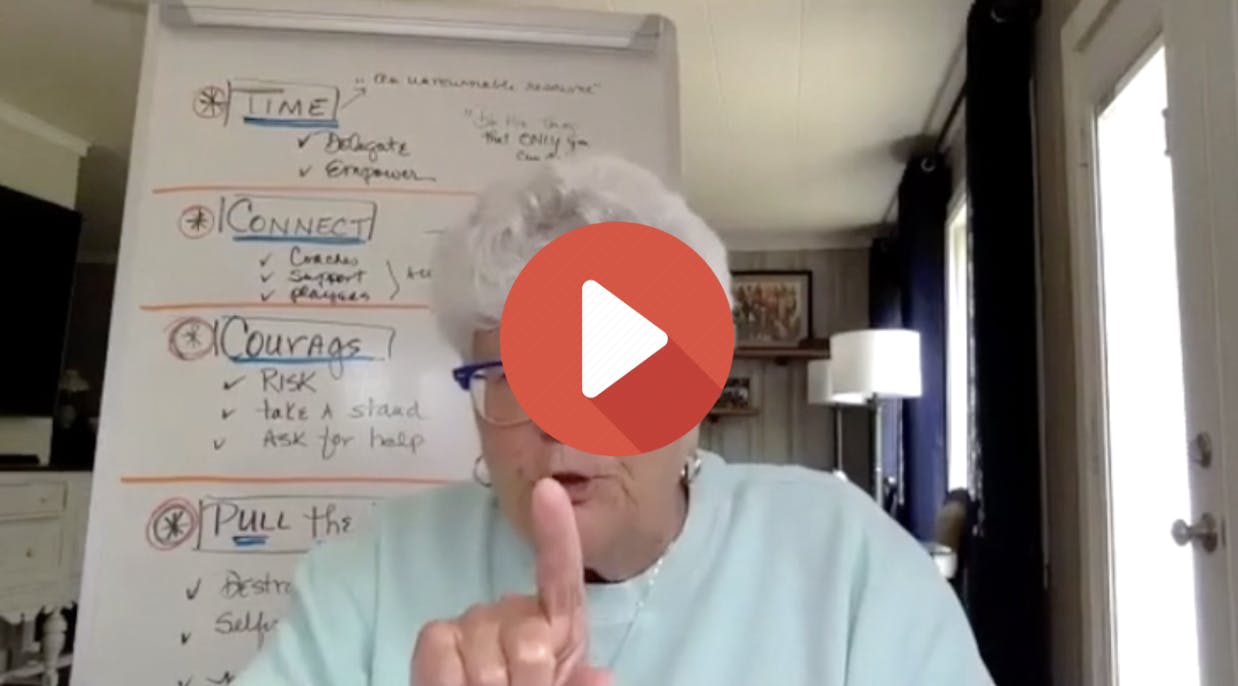
“Great talent makes great coaches. You’ve got to find it, you’ve got to recruit it, you’ve got to sign it.”
Regardless of what level you coach at, there are always opportunities to scout and seek out talent to improve your team. While this is obvious for college coaches (in the form of high school recruitment), even high school coaches can spend time speaking to junior high players that they identify as talented and trying to ensure that attend their school.
And once that talent is acquired, the number one priority from there is developing that talent by any means necessary.
Coach Dunn believes that the sign of a great coach is whether their players get better over the course of a season.
But it isn’t enough just to have a hope of developing players. Each player must have an individual development plan set up by them and the coaching staff, which identifies specific goals (there’s that word again) that the player needs to reach to further develop their game.
Just like an organization’s goals, these individual development goals must be believable, measurable, and achievable. There needs to be specific drills or workouts that are set up so that individuals can develop in the ways they need to.
Coach Dunn also stresses that a head coach must be on the same page as their star player or team captain. Those are the people who control the locker room and dictate a team’s morale when you’re not present.
For this reason, coaches have to be willing to listen to a star player’s or captain’s opinions or gripes, even if they don’t necessarily agree with them. Just hearing what the player has to say, will give a coach a clearer understanding of how the locker room is feeling, which will provide crucial insight on where to go from there.

